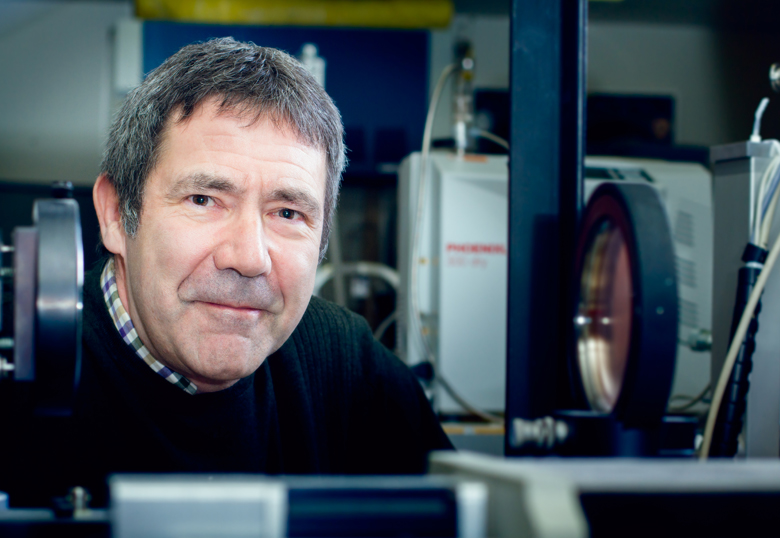The University of Lethbridge’s Dr. David Naylor will receive a Royal Astronomical Society (RAS) award for outstanding contribution to astronomy as part of the Herschel-SPIRE Consortium.

Naylor (physics and astronomy), the Canadian lead on the Herschel-SPIRE Consortium, and his group are being honoured with the Group Achievement Award for achievement by a large consortium in astronomy. The RAS medals and awards for 2014 were announced Jan. 10, 2014 and will be presented at the 2014 National Astronomy Meeting to be held in Portsmouth, England in June 2014.
“Through his work with the SPIRE consortium, Dr. Naylor has played a leadership role on an initiative that will have a lasting impact for decades,” says University of Lethbridge Vice-President (Research) Dr. Dan Weeks. “This recognition is well-deserved and is yet another example of the world leading research that happens at the U of L.”
The award represents recognition by the astronomical community of the outstanding success of the SPIRE instrument, which observed the universe at far infrared wavelengths, a few hundred times longer than the wavelengths of visible light. The international team was responsible for the design, construction and delivery of the instrument as part of the instrument suite for the European Space Agency’s Herschel Space Observatory.
SPIRE was co-developed by Naylor and a team of researchers who led Canada’s contribution to the Herschel project on behalf of the Canadian Space Agency.
“We’re delighted to receive see this award from the Royal Astronomical Society. Astronomy is a science driven by advances in technology. Nowhere is this more true than in the technically challenging wavelength range observed by Herschel,” says Naylor. “Having spent well over a decade working on the SPIRE instrument it felt like a member of our family when it was launched, and it is fair to say that it has exceeded all expectations. Some would argue that it is one of the most successful space astronomy projects of all time.”
The Herschel satellite was launched in 2009 and operated very successfully for four years. By virtue of its unparalleled sensitivity and unique capabilities, the results obtained using SPIRE have been felt across a broad swath of astrophysics and in particular in detailed studies of star formation in the local universe and extending out to very distant objects.
“SPIRE has been a truly international endeavour, with 18 institutes in eight countries participating, and countless talented people with wide ranging expertise contributing to building and operating the instrument,” says Professor Matt Griffin, from Cardiff University, who led the international SPIRE team. “This Group Achievement award for is a fitting tribute to the success of their efforts.”
The Royal Astronomical Society, founded in 1820, encourages and promotes the study of astronomy, solar-system science, geophysics and closely related branches of science. Its more than 3,500 members include scientific researchers in universities, observatories and laboratories, as well as historians of astronomy and others.
